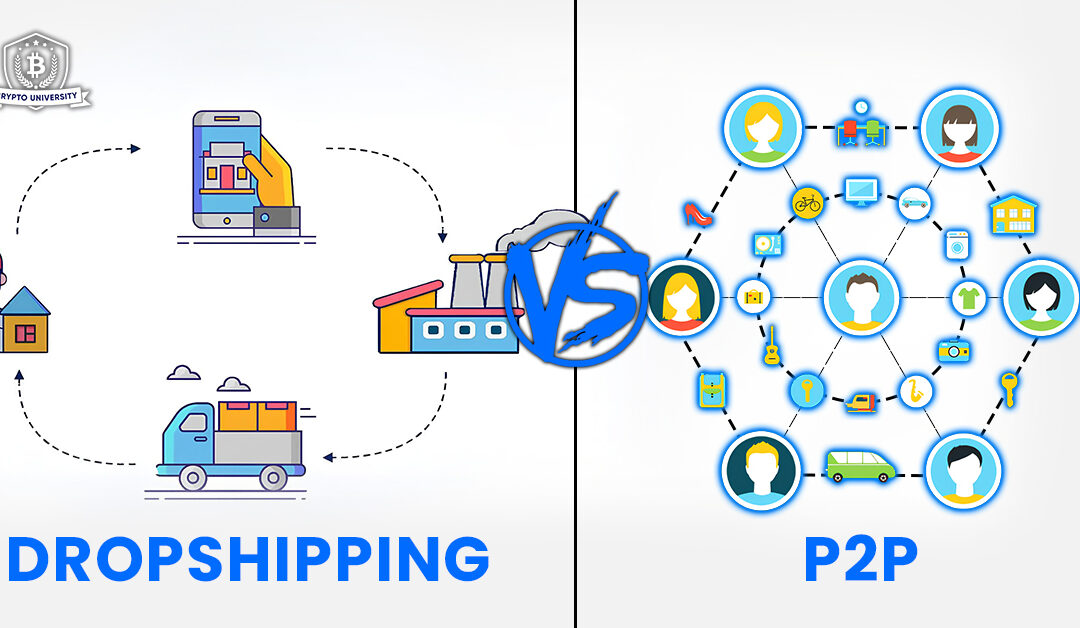The e-commerce landscape is constantly evolving, and with each passing year, new trends and business models emerge. As we venture into 2024, two prominent models stand out: dropshipping and peer-to-peer (P2P) commerce. Both have their unique advantages and challenges, and choosing the right model can significantly impact the success of an online business. Let’s delve into each model to determine which might be better suited for entrepreneurs in 2024.
Dropshipping: The Low-Risk Retail Strategy
Dropshipping is a business model that allows entrepreneurs to sell products without holding any inventory. When a customer places an order, the product is purchased from a third-party supplier and shipped directly to the customer. This model significantly reduces the risk and investment required to start and run an e-commerce business.
Pros of Dropshipping:
- Low Overhead Costs: Without the need to manage inventory or a physical storefront, dropshipping can be started with minimal upfront investment.
- Flexibility: Entrepreneurs can operate from anywhere and add or change products easily to adapt to market trends.
- Scalability: It’s easier to scale a dropshipping business since order fulfillment is handled by the supplier.
Cons of Dropshipping:
- Lower Profit Margins: Since you’re purchasing products from a supplier who also needs to make a profit, the margins are often lower.
- Less Control Over Inventory: Stock shortages and fulfillment errors can occur, which are out of the retailer’s control.
P2P Commerce: The Community-Driven Marketplace
P2P commerce is a model where transactions occur directly between buyers and sellers without the involvement of intermediaries. This model fosters a sense of community and allows for greater transparency and control over transactions.
Pros of P2P Commerce
- Community Connection: P2P commerce platforms create vibrant communities where individuals can connect, share, and transact in a more personal and authentic manner. This sense of belonging fosters trust and loyalty, enriching the overall shopping experience.
- Direct Interaction: Sellers and buyers interact directly, which can build trust and loyalty.
- Greater Control: Sellers have more control over their product listings, pricing, and customer interactions.
- Decentralization: P2P platforms often leverage decentralized networks, which can reduce fees and increase security.
Cons of P2P Commerce
- Market Saturation: With the rise of P2P platforms, there’s a risk of market saturation, making it harder for new sellers to stand out.
- Operational Challenges: Sellers are responsible for managing their sales, which can be more time-consuming and complex.
Which One Is Better in 2024?
Choosing P2P (peer-to-peer) commerce over dropshipping in 2024 can offer several compelling advantages for entrepreneurs looking to establish a strong presence in the e-commerce landscape.
P2P commerce is not just a business model; it’s a movement that champions direct interaction, community building, and equitable trade. By eliminating intermediaries, P2P platforms like Noones allow merchants to make:
- Direct Customer Relationships: P2P commerce allows for direct interaction between buyers and sellers, fostering a sense of community and trust. This can lead to more meaningful customer relationships and repeat business.
- Higher Profit Margins: Without the need for a middleman, P2P merchants often enjoy higher profit margins. You have the freedom to set your own prices and keep a larger share of the profits.
- Greater Control Over Your Business: As a P2P merchant, you have complete control over your inventory, branding, and customer experience. This autonomy enables you to quickly adapt to market changes and customer feedback.
- Reduced Competition: While dropshipping can be highly competitive due to the ease of entry, P2P platforms can offer a more curated marketplace, reducing direct competition and allowing for better visibility of unique products.
- Support for Various Payment Methods: P2P platforms like Noones support a wide range of payment methods, including cryptocurrencies, which can provide additional security and convenience for both merchants and customers.
- Community Support and Engagement: P2P marketplaces often come with a built-in community of users who support each other, share insights, and contribute to a collective growth environment.
- Embracing Technological Advancements: P2P commerce is at the forefront of leveraging blockchain and other decentralized technologies, offering cutting-edge solutions for secure and transparent transactions.
In summary, P2P commerce provides a more personalized, profitable, and controlled environment for merchants, making it an attractive option over dropshipping for those looking to build a sustainable and scalable e-commerce business in 2024.
Setting Up as a P2P Merchant on Noones
Becoming a merchant on Noones is a straightforward process designed to get you up and running quickly:
- Create Your Account: Sign up on Noones and verify your identity to ensure a secure trading environment.
- Set Up Your Storefront: Customize your merchant profile, list your products, and set your terms of trade.
- Start Trading: Engage with the vibrant Noones community, and begin your P2P commerce journey.
Noones supports a wide array of payment methods, ensuring that you can conduct business in a way that suits you and your customers best.
Why Choose Noones?
Noones is more than just a marketplace; it’s a platform that empowers you to be at the forefront of the P2P revolution. With its user-friendly interface, robust security measures, and a commitment to keeping fees low, Noones is the ideal partner for merchants looking to thrive in the P2P space.
The Future of E-Commerce is P2P
As we venture further into the digital age, P2P commerce is poised to reshape the e-commerce landscape, driving innovation, inclusivity, and empowerment. By embracing the principles of community, trust, and personalization, businesses can thrive in the P2P paradigm, forging deeper connections with their audience and unlocking new avenues for growth and prosperity.
In 2024 and beyond, P2P commerce isn’t just a trend—it’s a transformative force that is redefining the way we shop, sell, and connect in the digital marketplace. Join the P2P revolution and unlock the full potential of e-commerce with Noones P2P trading.
